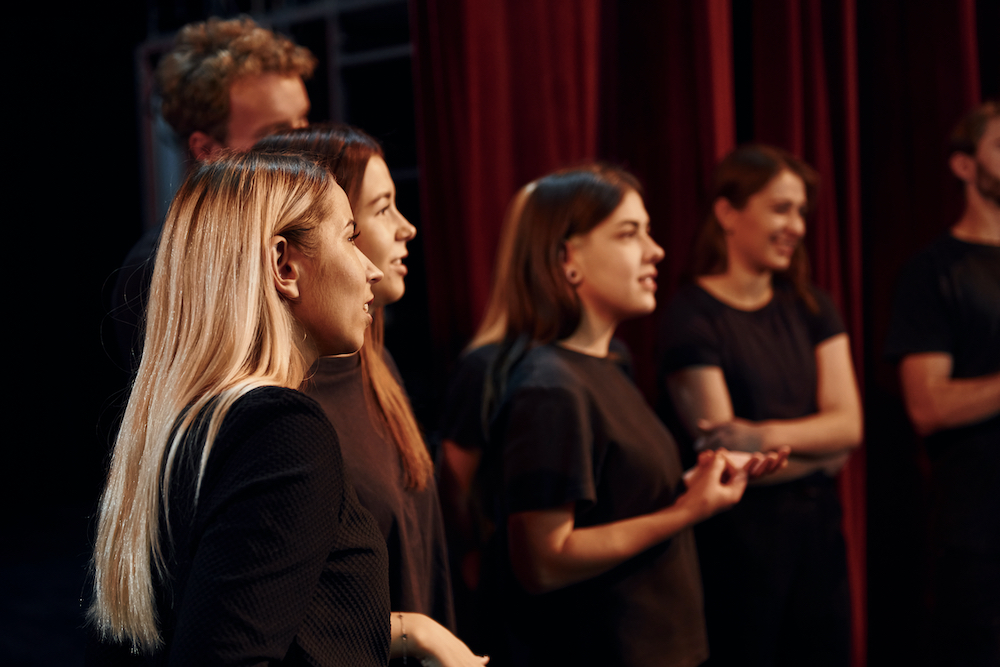28 February 2022
Core Skills: Development and Assessment
Cade Butler
MEd, Coordinator of Fine Arts, Frisco ISD
The first step to creating a rigorous and relevant curriculum is to determine the knowledge and skills that students adopt over the course of learning the subject matter.
In the school district I work for in the North Texas area, Frisco ISD, we use the Theatre Arts Texas Essential Knowledge and Skills (TEKS) state standards to help provide a framework for curricular development in our content areas. Unpacking these standards is the practice of isolating the actionable core skills that students should be able to demonstrate by the end of a course. Once these skills have been singled out for instructional practices, teachers are faced with the task to establish a culture of creating an individualized educational journey for each student that culminates with an assessment that targets the scaffolded development each child has with this skill.
Core Skills and Power Standards
In a theatre or technical theatre classroom, just like any other educational course, student understanding, explanation, and demonstration define the process leading to mastery of a Core Skill. The development of these skills is key to the overall artistic development of the student. Many educational systems identify which skills are the connectors to all other learning within that subject – often called Power Standards. These Power Standards are the through-threads that connect introductory material to advanced level practices as they do more than simply create the solid foundation upon which all acting and design technique is based (e.g. Elements of Art & Principles of Design: Technical Theatre; Ballet: Dance).
As an example, one of the state standards (TEKS) for the high school course Theatre Arts 1 is that students will be able to “use physical, intellectual, emotional, and social awareness to portray believable characters and convey a story when applying acting concepts, skills, and techniques” (2D). In Frisco ISD, this has been identified as a Power Standard for our professional learning community (PLC) of our team of 40 theatre educators. In this PLC, we have decided to take an active approach to refine not only WHAT standard is prioritized in our theatre classrooms, but also HOW that skill is taught to our students. With this example, teachers provide opportunities to students to explore character development through four targeted areas (physical, intellectual, emotional, and social awareness).
Development
With the appropriate incorporation of Core Skills into each unit within a course, teachers are able to track the development of student practice of this skill. In order to capture meaningful data, teachers create rubrics that can be applied to multiple projects and units that focus on the development of these skills. Using the same rubric for these targeted skills helps teachers identify common themes amongst their students to bring to light the inherent learning gaps their students have based on their delivery of instruction. These learning gaps lead teachers to the never-ending challenge of writing a robust and educationally viable curriculum that is based on the needs of students.
In Texas, we have specific TEKS for each course (e.g. High School Tech Theatre I-IV). One of these deeply connected skills revolves around safety. Theatre teachers across the state of Texas prioritize teaching students how to demonstrate knowledge and skill in Technical Theatre using the best and safest practices. In Frisco ISD, our Theatre PLC determines what this looks like with our equipment for our specific students. The collaboration of our teachers provides more depth to the daily practices that we use district-wide in order to keep our students safe. We are able to utilize the practices during classroom instruction (curricularly), and also integrate them into our extra-curricular programming as we build for productions after school hours.
Assessment
In acting and tech classes, an increased emphasis on teaching and assessment has led to meaningful growth in student understanding within these newly acquired skillsets for our students. As teachers continue to refine their own teaching methods, their students’ abilities to demonstrate each step to mastery of the Core Skills become more manageable and intentional. Determining methods to collect data based on skill development is the next phase that will motivate professional growth in theatre educators.
Related blogs
Teaching English: top 5 blog posts of 2022
From key literary topics such as poetry and Shakespeare to 21st-century skills like speaking and...
Read more5 reasons critical thinking is THE most important skill for students
Critical thinking just keeps cropping up. It’s a buzzword in schools at the moment, and despite...
Read more5 ways to incorporate critical thinking into your teaching
In a recent blog post, we discussed the five biggest reasons why students need good critical...
Read moreGet the latest teaching tips straight to your inbox
Explore free lesson ideas and inspiration, education news, teaching trends and much more by signing up to regular blog updates!




